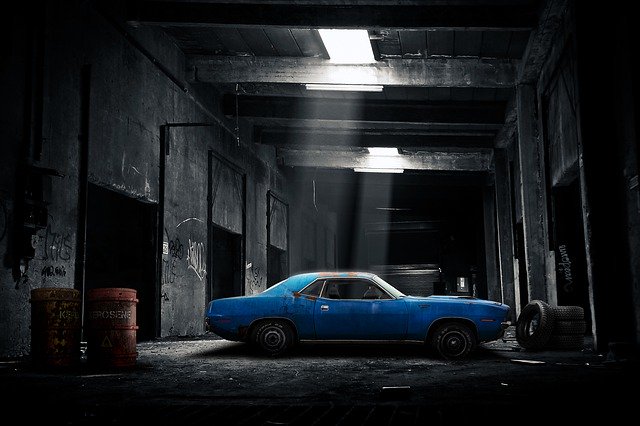5 Healthchecks to Help Maintain Your Unused Car

You may have heard about this Coronavirus thing! For the forseeable we will all be locked down with various restrictions in place around our movement and this of course has knock-on effects on the vehicles we own. Unless you work in an industry or service that is deemed essential it is likely that your time on the road has lessened drastically in recent weeks. Indeed it is possible the only time your use the car is to go to the supermarket and load up on some shopping. For families with more than one car the issues is further exacerbated with perhaps some of the cars remaining totally idle.
In some ways, cars are like people in that sitting around and doing nothing for extended periods is quite unhealthy for them. So while you probably have enough to worry about as things are, the last thing you need on top of everything else is waking up some morning to find out your battery is dead and you can’t drive to the local shop or pharmacy. And of course if you are faced with a mechanical issue there is the additional concern of finding a mechanic to fix it (assuming you are not qualified to do so yourself).
Therefore we would like to present you with some advice on how to keep your car in good order during the Coronavirus outbreak. We don’t want to overwhelm you with information so we’ll keep it simple and to the point and assume your ability when it comes to repairing cars is moderate at best.
Now let’s dive into it; here are five healthchecks you can carry out to keep your vehicle in good condition during lockdown:
1. Battery
Take the car for a spin now and then. Like taking a dog for a walk, it will do your car good even if it’s just a quick run around the neighbourhood. You will get the engine up to operating temperature and ensure fluids are circulared around the vehicle. Many newer vehicles have systems and technology that are always on and they absord energy so if the car is simply sitting there and not recharging, the battery could be dead within two weaks. A simple five minute drive will mitigate against this risk, and is especially recommended for second cars that have been idle for longer.
2. Fuel
Not too much to worry about here but worth keeping an eye on, particularly if your car is going to be sitting idle for a number of weeks. It’s a known fact that fuel will degrade over time but modern fuel systems are prepared for this and are well-sealed to limit the impact of oxidation and extend fuel life. A full tank is an additional bulwark against condensation so worth filling it next time you venture out to the petrol-station.
Another recommendation if you want to be extra cautious and if lockdown restrictions continue indefinitely is a fuel stabizer to prevent the fuel deteriorating and doing any damage to the tank, pump or lines and injectors.
3. Tyres/Brakes
Problems in both of these areas can be easily alleviated if you take the car for a short drive occassionally. If you don’t however then rust can form on the brake rotors especially if the vehicle is parked outside, and this can happen in a matter of days. The rust wull then enter the brake-pad lining and lead to noise, erratic braking and issues with the brake-pedal sensitivity.
Tyre pressure is another area that will be adversely affected by long-term inertia and as well as that if a car is static for a long period, flat spots can develop on the tyre. Get it inflated to the manufacturer’s recommended pressure levels once a month or you will have go through the painful process of jacking up the car while it’s in storage.
The good news is that the solution to preventing the majority of tyre and brake damage is a simple one – drive the car!
4. Storage and Oil
With sunnier weather finally coming our way it is worth noting that leaving the car in the sun for lengthy periods is going to have negative consequences for the paintwork and any rubber trim. Similarly the interior can suffer from excessive exposure to the sun in the form of damaged upholstery.
The ideal here is to store the vehicle in a garage or anywhere relatively dry and indoors with a concrete floor.
And don’t forget about the need for an oil change as the oil will downgrade quickly due to temperature fluctuations if ithe vehicle is not being driven. And while you’re at it you may as well check the transmissions and gear fluids – it’s not like you have a busy social schedule so why not attend to the little jobs you always forget about or put off, right?
5. Anything else?
Clean the car, it’s more important than ever to do that now, for more information on that see here
Don’t park under a tree for the simple reason that in Spring a lot of leaves, twigs, branches and other material can get caught in the car’s ductwork and harm your blower motor.
Remember if you are charging the battery to also turn on the air-conditioning system and leave the recirculation control in the open position so the car can air out.
Oh and finally check for any nesting animals under the bonnet – once all that is done you’re good to go, or in this case stay put most of the time!